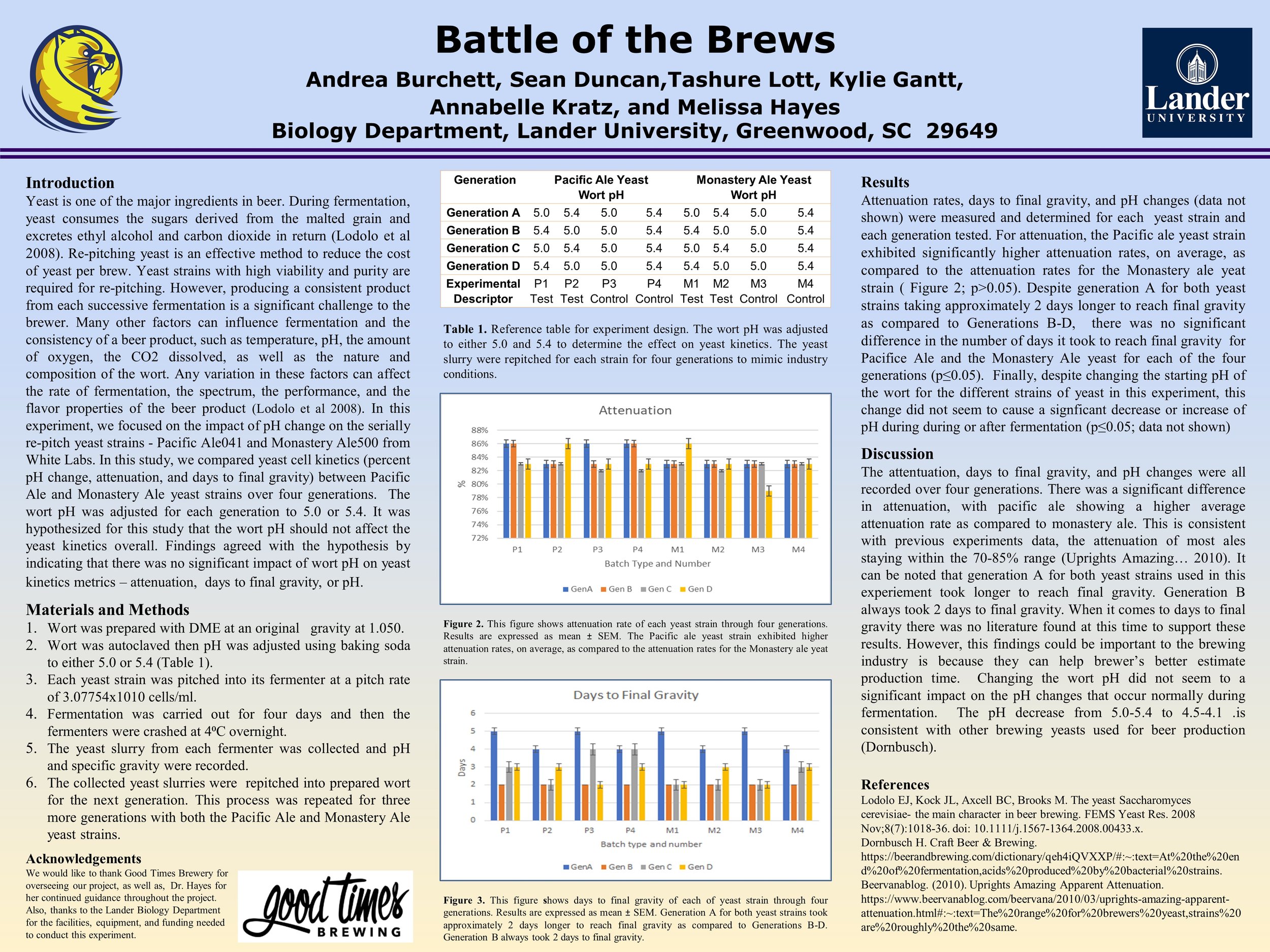Battle of the Brews!
Andrea Burchett
Yeast is one of the major ingredients in beer. During fermentation, yeast consumes the sugars derived from the malted grain and excretes ethyl alcohol and carbon dioxide in return. Re-pitching yeast is an effective method to reduce the cost of yeast per brew. Yeast strains with high viability and purity are required for re-pitching. However, producing a consistent product from each successive fermentation is a significant challenge to the brewer. Many other factors can influence fermentation and the consistency of a beer product, such as temperature, pH, the amount of oxygen, the CO2 dissolved, as well as the nature and composition of the wort. Any variation in these factors can affect the rate of fermentation, the spectrum, the performance, and the flavor properties of the beer product. In this experiment, we focused on the impact of pH change on the serially re-pitch yeast strains - Pacific Ale041 and Monastery Ale500 from White Labs. In this study, we compared yeast cell kinetics (percent pH change, attenuation, and days to final gravity) between Pacific Ale and Monastery Ale yeast strains over four generations. The wort pH was adjusted for each generation to 5.0 or 5.4. It was hypothesized for this study that the wort pH should not affect the yeast kinetics overall. Findings agreed with the hypothesis by indicating that there was no significant impact of wort pH on yeast kinetics metrics – percent pH change, attenuation, or days to final gravity.
Andrea Burchett is a senior graduating biology major with a chemistry minor. She is a member of the TriBeta National Biological Honor Society here at Lander. After graduation, she hopes to attend graduate school to further her knowledge in microbiology.
